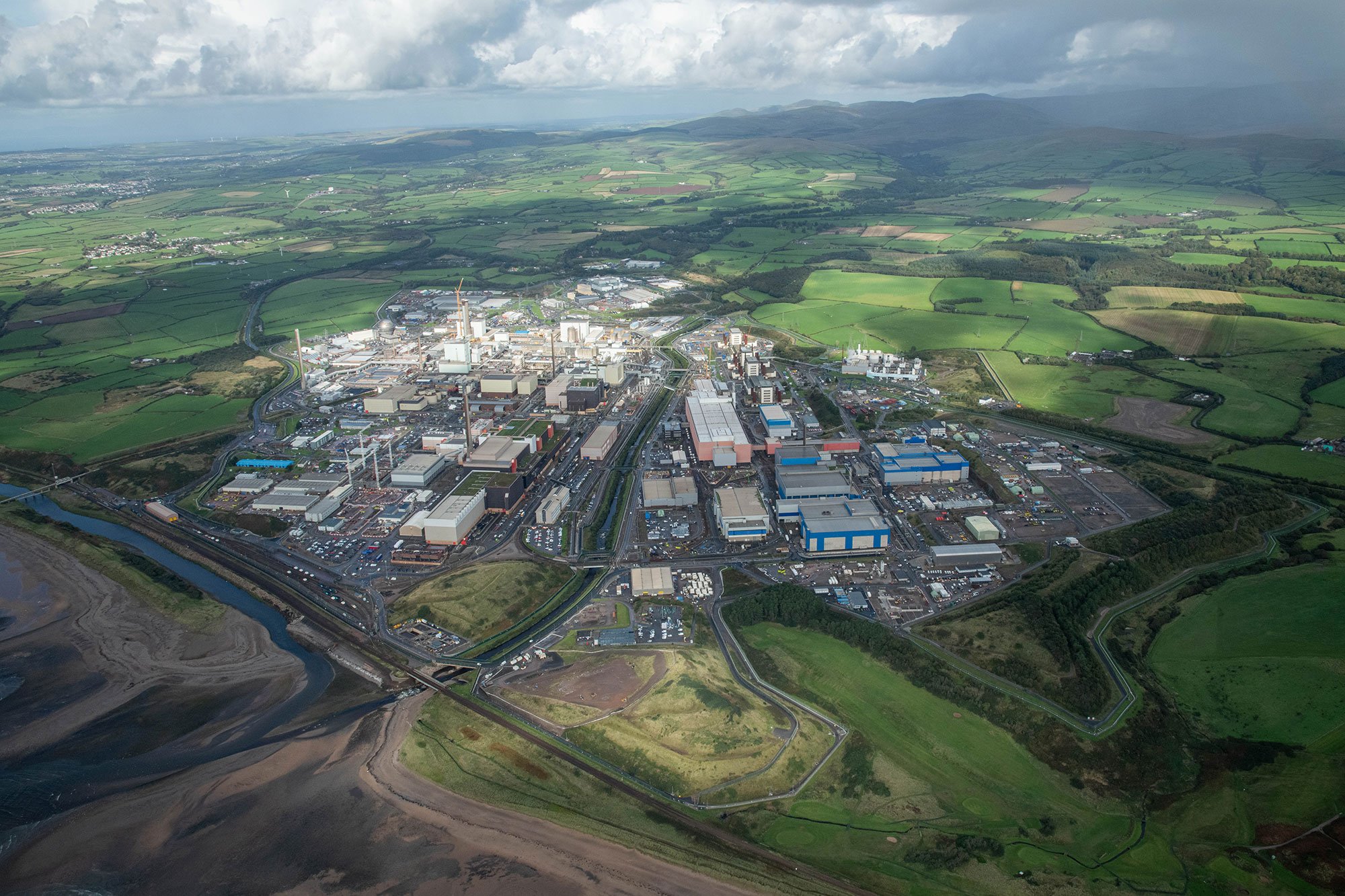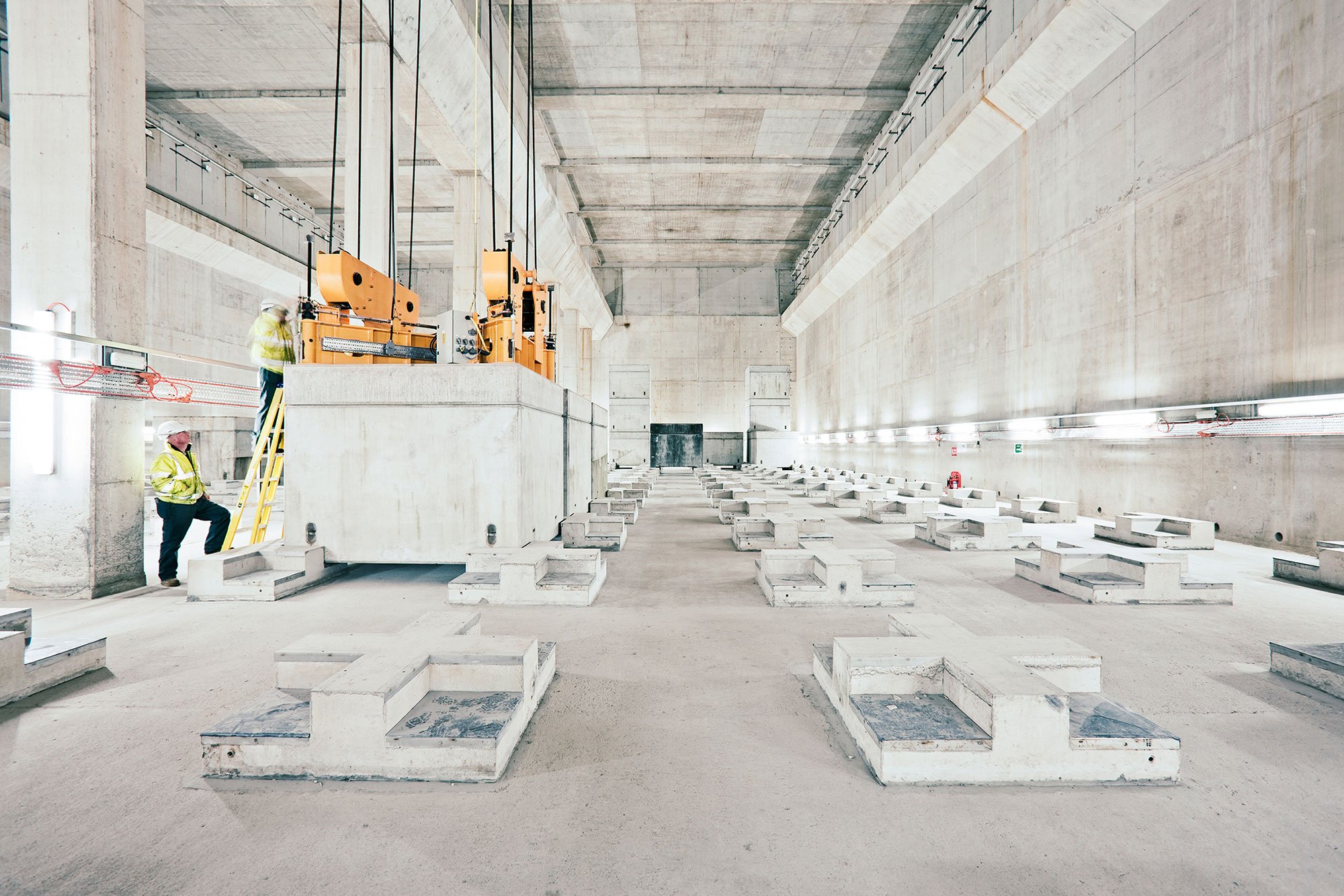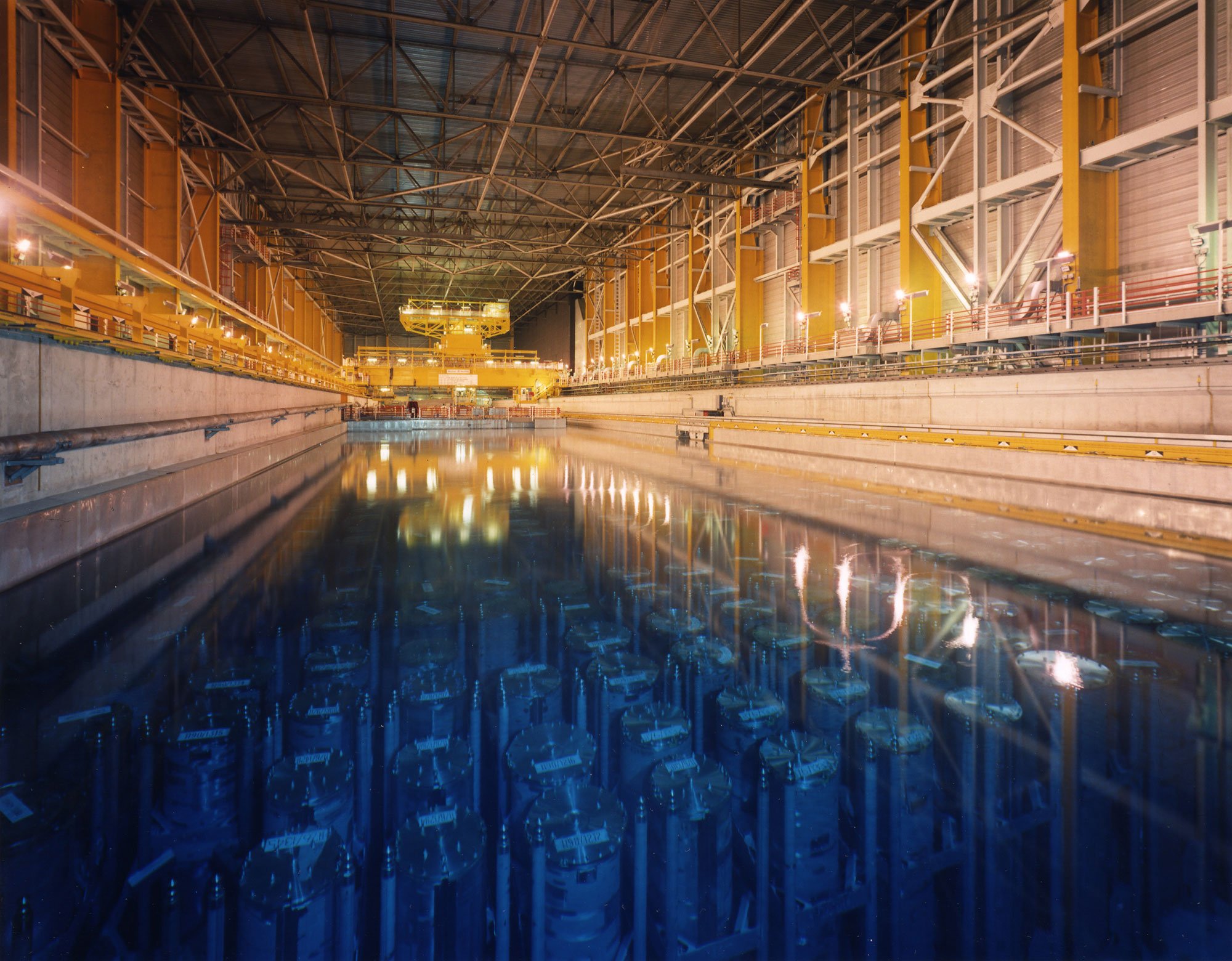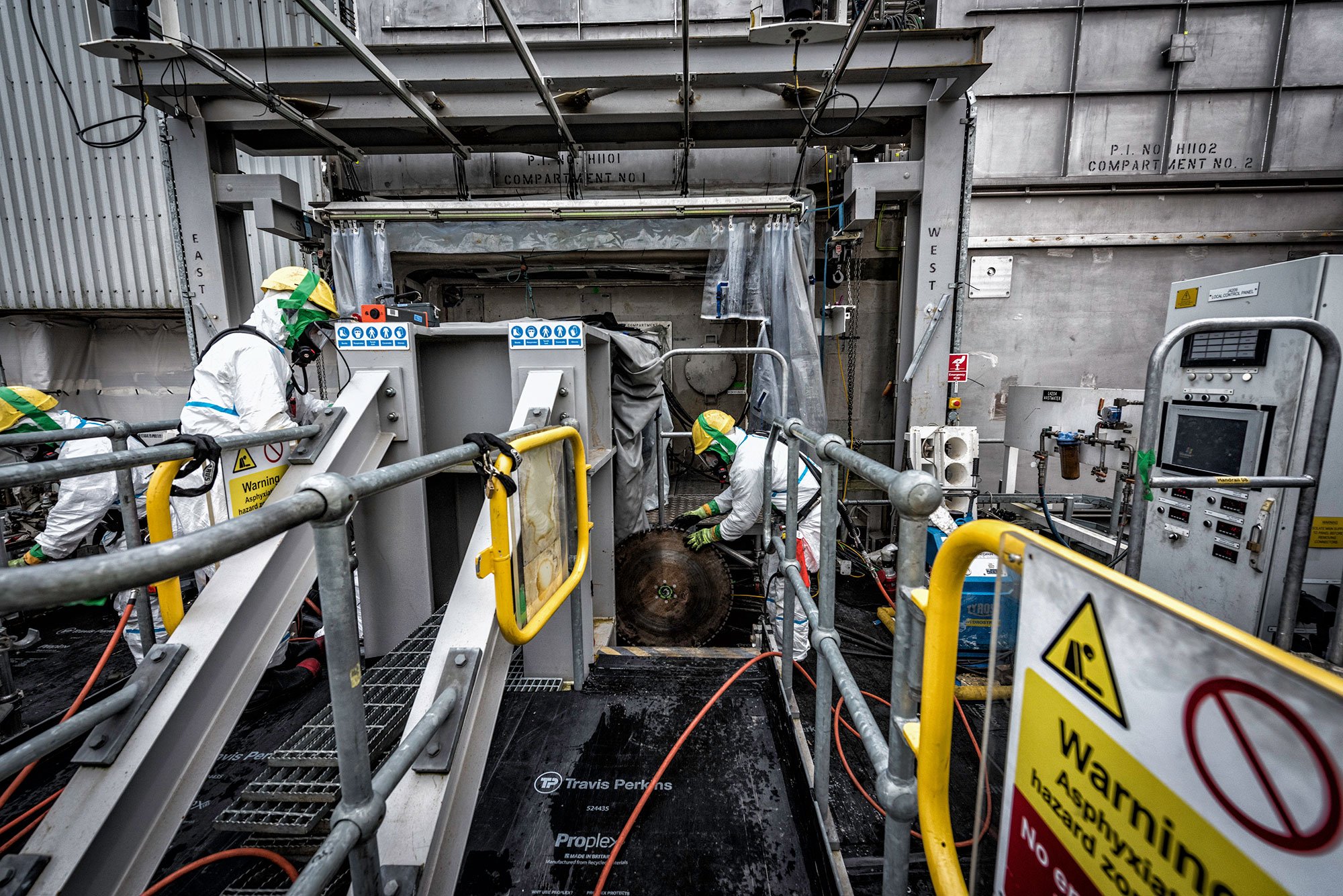Nuclear Energy Futures Centre for Doctoral Training (NEF CDT)
The Nuclear Energy Futures CDT will graduate up to 80 PhDs that will provide innovation and leadership for the future of the UK nuclear industry. It's an evolution of the highly successful ICO CDT programme.
Nuclear power is the largest source of low-carbon electricity in the UK and has a positive impact on the security and stability of our nation's energy supply. As the UK curbs fossil fuel consumption and carbon dioxide emissions increases its proportion of renewable energy, nuclear power assumes a vital role in any future energy mix as a source of low-carbon baseload electricity.
To ensure nuclear's role in a greener future is significant, the skills shortage must be addressed, new build and decommissioning costs must come down, geological disposal has to be explored and the UK has to have the skills to contribute meaningfully to cutting-edge technologies such as fusion and Gen IV reactors.
The Nuclear Energy Futures CDT will put your interests at the centre of your study. We listen to your research interests, and we will work hard to connect you with stimulating PhD projects supported by a team of industry and academic experts.
While doing your PhD, you will take specially designed modules to give you the knowledge and skills needed to navigate the nuclear landscape, participate in cohort-building activities across the world, and prepare for a rewarding career.
NEF CDT 4-year PhD
Applications are invited from candidates who have an interest in the PhD projects listed below for entry in the academic year 2022/23.
The list of projects available is not exhaustive, although the projects listed below have preference: they have funding agreed and are available immediately.
Applicants who cannot find a suitable project listed should discuss their preference with the CDT admissions panel. Although we will do our best, there is no guarantee we can find an appropriate supervisor or funding. Similarly, candidates are welcome to apply and be put on a mailing list informing them when new projects become available.
Please note also that project supervisors may require more specific qualifications and backgrounds to suit the skills and experience needed by the PhD research project. These should be listed on the project descriptions - if not, you should enquire with the supervisor directly.
Due to the sensitive nature of the research being carried out, some projects may require you to be a UK national. These should also be listed on the project descriptions - if not please enquire with the supervisor directly.
Specific research topics will be agreed with candidates when an offer is made.
-
A framework for modelling groundwater flow in heterolithic sedimentary sequences
Ageing of plutonium oxide powders: evolution of physical properties
Assessment of the prospects for radiogenic lead as a coolant for Lead-cooled FRs
Automated design optimisation of nuclear reactor cores
Critical experiments to unravel metal corrosion
Data assimilation and application in radiation physics and shielding
Dynamic fracture testing techniques for alloys
Effect of ground water composition on the design of a waste disposal facility
Experiments to create a predictive model to unravel corrosion damage in steel
Extraction of hydrogen isotopes from molten lithium
Galling-resistant Co-free hard facings for light water reactors
Radiation damage of advanced shielding for compact fusion reactors
Salt-cooled high-temperature reactors
Using artificial intelligence to predict and validate nuclear data
-
Modelling the behaviour of compacted bentonite for nuclear waste disposal
Steel oxidation and wear
Developing cancer treatments with Targeted Auger Therapy
Performance of aged cement grouts for encapsulating radioactive wastes
Computational modelling supporting experiments at Jules Horowitz Reactor
A new approach for 3D mapping of residual stress
Salt-cooled High-temperature Reactors
Simulating the scatter of a polycrystalline in synchrotron diffraction using crystal plasticity simulation
High-fidelity modelling of clad ballooning during a loss-of-coolant accident
Peridynamics and finite element crystal plasticity modelling of oxidation of Zr alloys
A new generation of models for predicting corrosion damage in stainless steel
Extracting fracture parameters from non-standard specimens using digital image correlation
Correction of microstructural aberration in neutron diffraction strain measurements in power plant structures
Thermal-Hydraulics measurement and sensing techniques for nuclear applications
Investigation into Hot Isostatic Pressing of a 12% chromium martensitic steel and optimisation of the bond to Nickel Based Alloy 625
Inducing the resumption of alteration in UK radioactive waste glasses
Simulation and validation of damage in ferritic/martensitic materials
Plasticity-induced damage in high-temperature reactors
Modelling the thermal performance of Accident Tolerant Fuels based on UN
Irradiation creep induced nano-/microstructure and property changes in graphite
A Bayesian Neural Network (BNN) Machine Learning (ML) surrogate modelling framework for high-fidelity thermal fatigue modelling of components within load-following Nuclear Power Plants
-
Multi-physics reactor optimisation coupled with uncertainty quantification
Creep-plasticity interaction in high-temperature reactor materials
Enhancing system resilience and organisational safety in the nuclear industry through joined-up regulation, policy and procedures
Modelling advanced technology fuels for Gen IV Very High Temperature Reactors
Ageing of plutonium oxide powders: evolution of physical properties
Nuclear fuel cycle technologies and economics
Mathematical and computational modelling of nuclear criticality safety analysis
The optimum role of nuclear fusion in carbon-free future energy systems
Investigating the effect of Zn addition to corrosion of alloy-600 in water-cooled reactors
Investigating actinide oxide reactivity in waste
Modelling delayed hydride cracking and crack growth in Zr cladding
Neutron irradiation damage modelling for high temperature fusion applications
Hydride-based shielding materials for compact fusion power reactors
Using artificial intelligence to predict and validate nuclear data
An investigation of metallic uranium corrosion in a GDF setting
Improving the performance of advanced technology fuels
Atom probe tomography and microscale mechanical testing of neutron irradiated Sizewell B reactor pressure vessel steel
High performance radiation transport methods with ray effect mitigation
-
Durability of Mg-Si-hydrate-based cements from brucite
Multi-objective optimisation capability for heterogeneous fuel assemblies
Analysis of creep-fatigue crack growth behaviour in W-Eurofer97 brazed joints
ZrO2-corrosion-layers and their grain boundary networks
Advanced shielding materials for next-generation nuclear fusion power reactors
Influence of microstructure on the diffusivity of hydrogen in advanced steels
Effects of nuclear fusion plasma excursions on Eurofer-97 components
Analysis and interpretation of creep-fatigue growth behaviour
Fast efficient modelling of hydride reorientation
Advanced composite nuclear fuels for enhanced performance and accident tolerance
Characterising creep crack growth behaviour in austenitic steel weldments
Next generation fluid flow solver for nuclear reactors
Corrosion of advanced nuclear fuel alloys
An investigation of corrosion and leaching of carbide fuels in a GDF setting
Welded joints behaviour in high-temperature reactors
Advanced nuclear fuel research for next generation reactors
Predictive modelling of nuclear reactor systems
Advanced alloy development for a new generation of nuclear fuel
Equality, diversity and inclusion
We are an inclusive and diverse CDT: apart from the minimum entry requirement, we are determined that no one that is motivated to join the programme should be stopped from doing so. Our courses are supported by distance learning so you can learn around your schedule, and there are options for part-time and flexible study if you have existing commitments.
